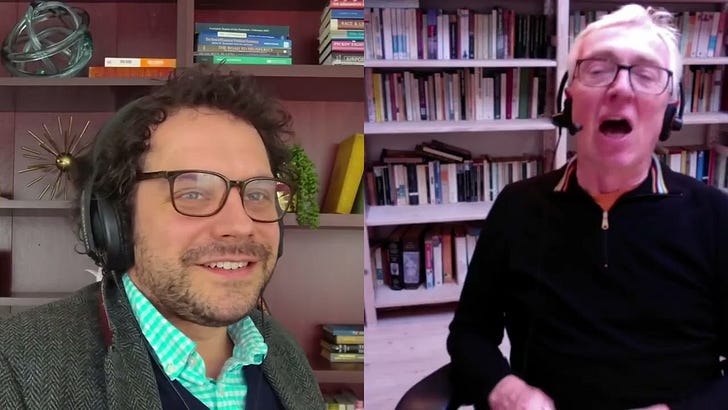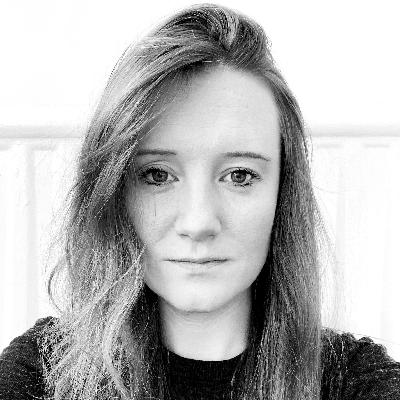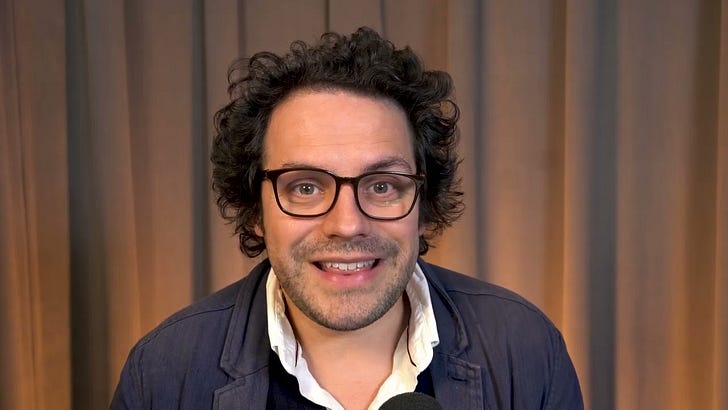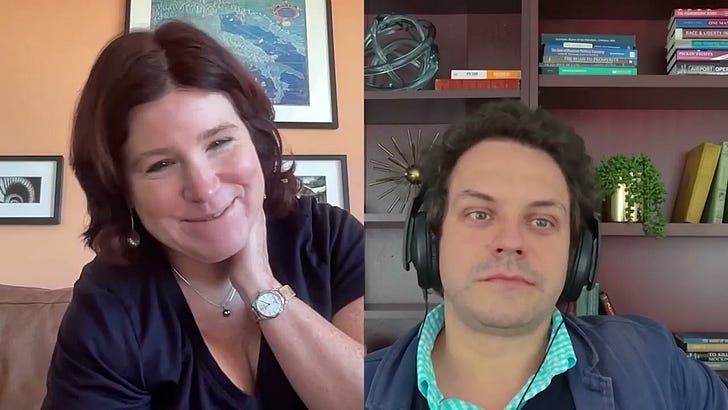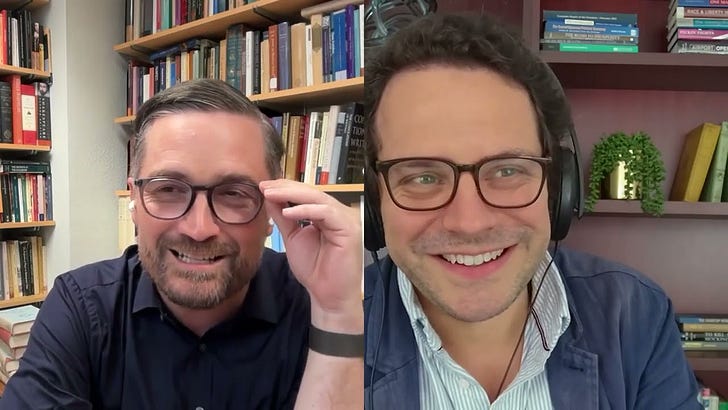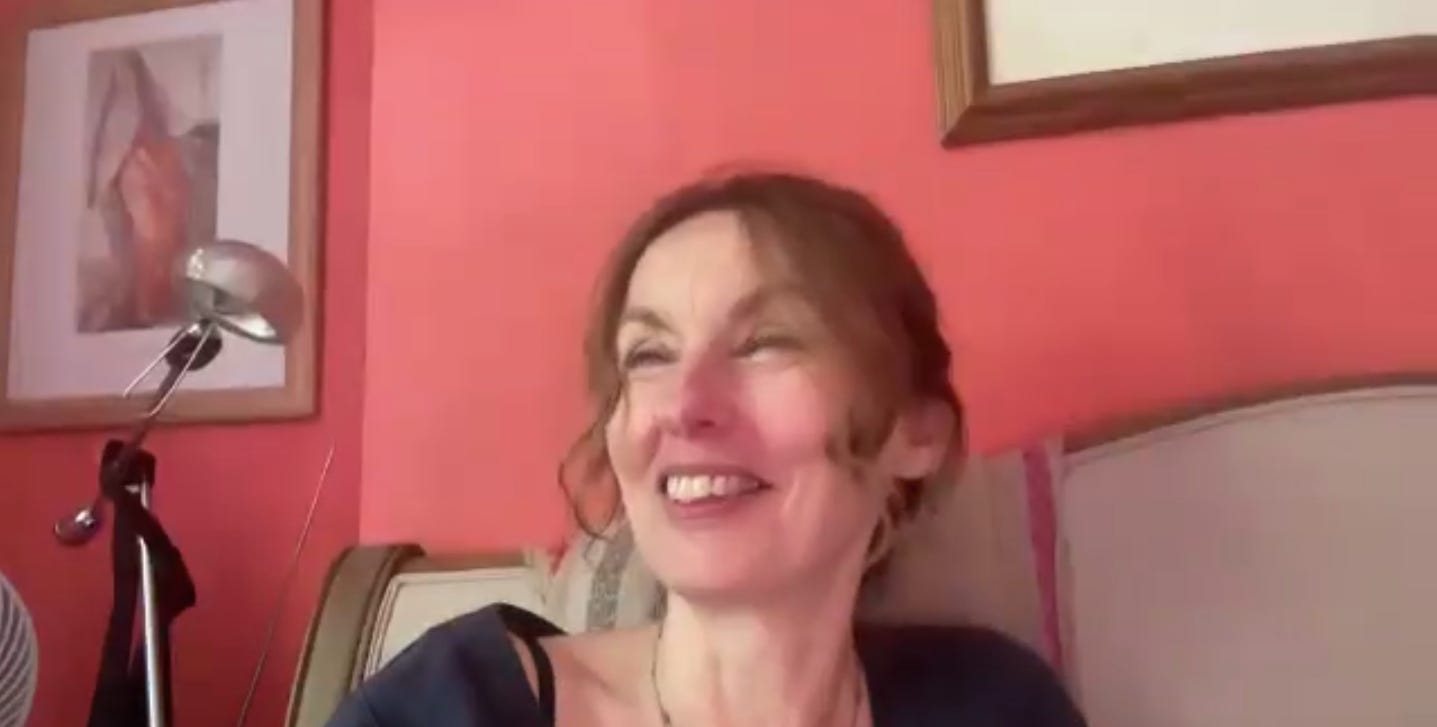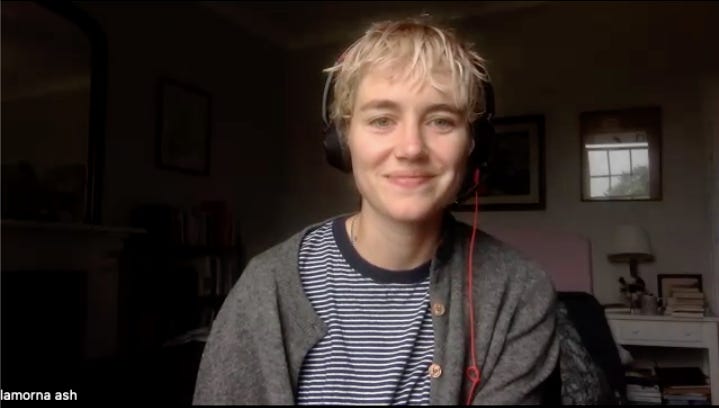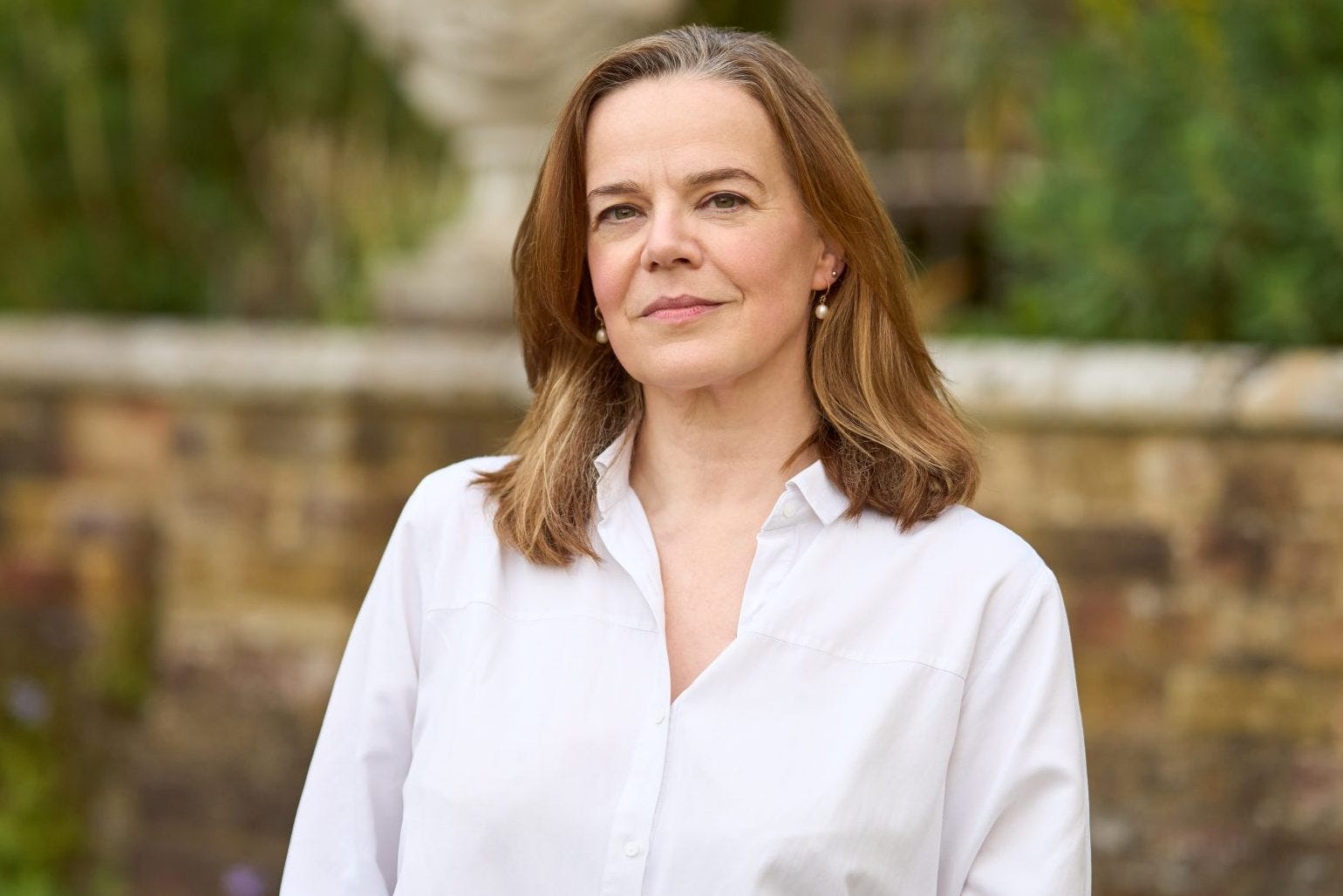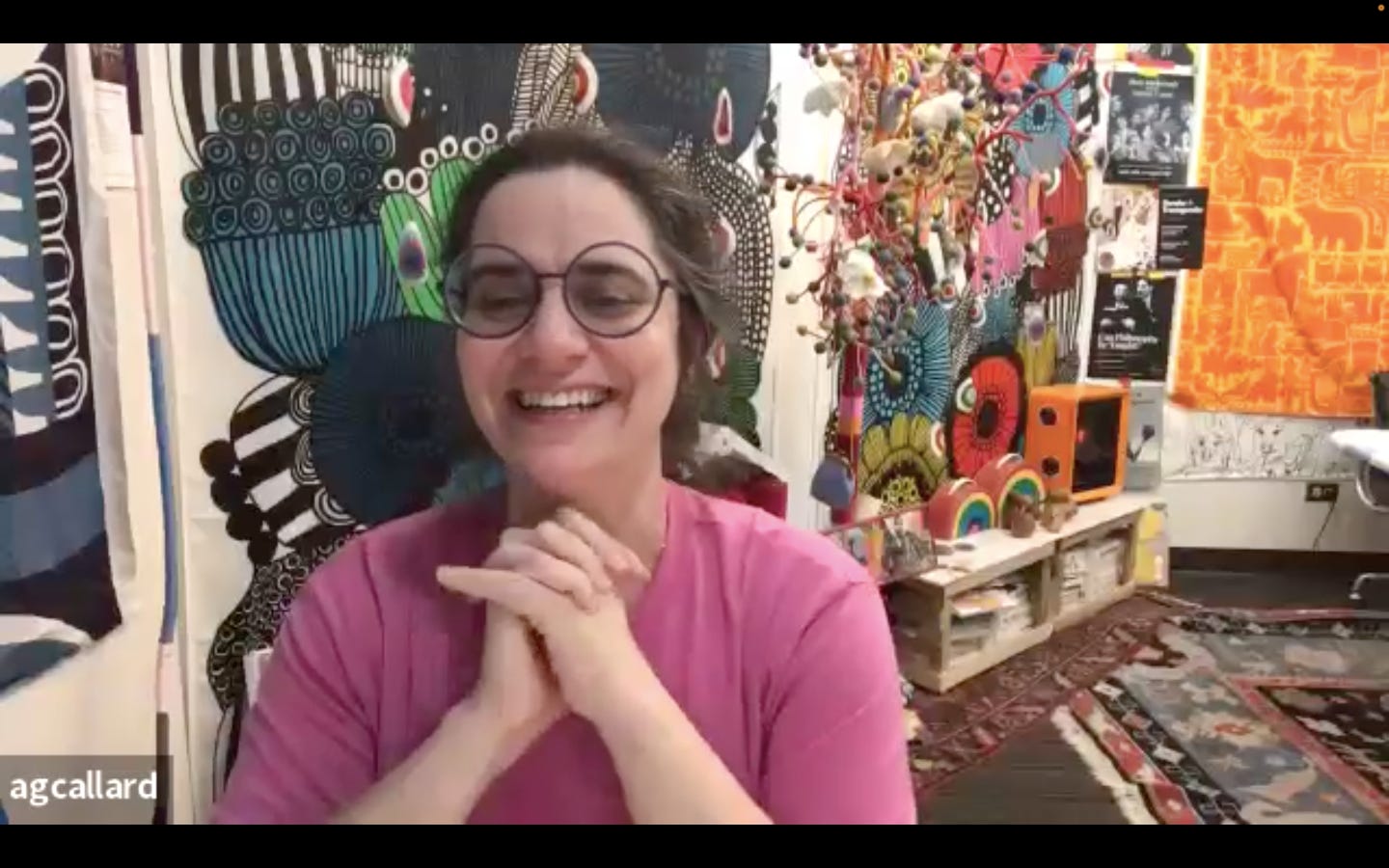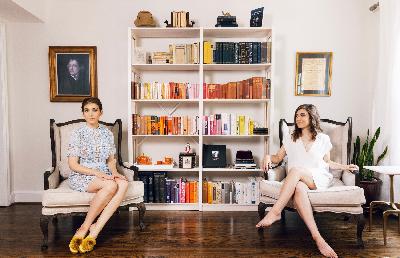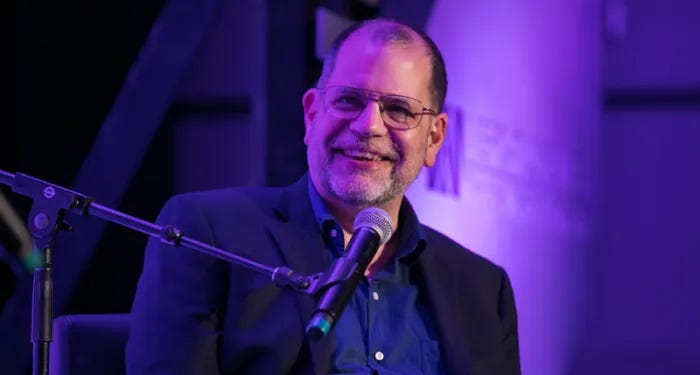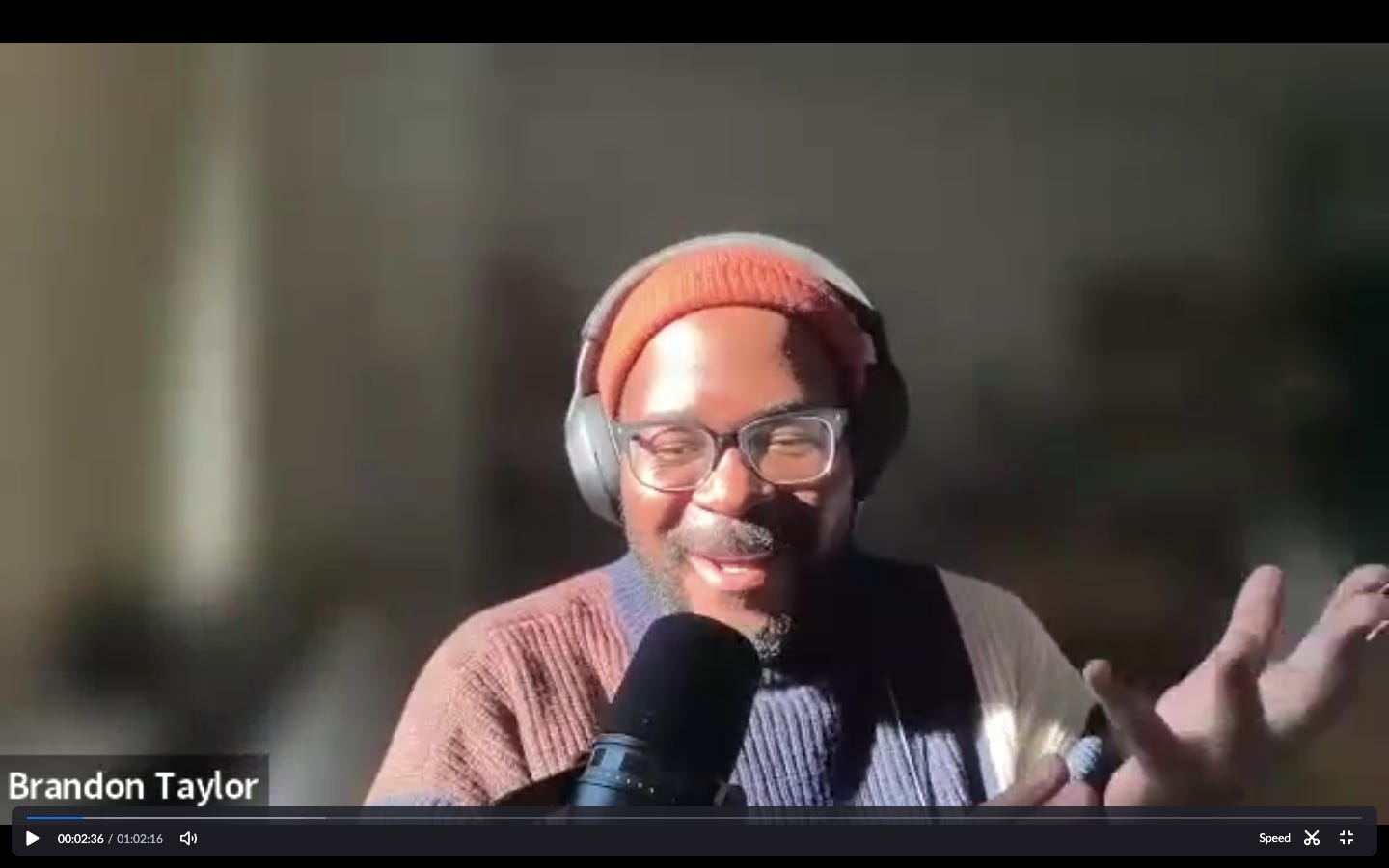Clare Carlisle: George Eliot's Double Life.
Description
Clare Carlisle’s biography of George Eliot, The Marriage Question, is one of my favourite modern biographies, so I was really pleased to interview Clare. We talked about George Eliot as a feminist, the imperfections of her “marriage” to George Henry Lewes, what she learned from Spinoza, having sympathy for Casaubon, contradictions in Eliot’s narrative method, her use of negatives, psychoanalysis, Middlemarch, and more. We also talked about biographies of philosophers, Kierkegaard, and Somerset Maugham. I was especially pleased by Clare’s answer about the reported decline in student attention spans. Overall I thought this was a great discussion. Many thanks to Clare!
Full transcript below. Here is an extract from our discussion about Eliot’s narrative ideas.
Clare: Yes, that's right. The didactic thing, George Eliot is sometimes criticized for this didacticism because what's most effective in the novel is not the narrator coming and telling us we should actually feel sorry for Casaubon and we should sympathize with him. We'd be better people if we sympathize with Casaubon. There's a moralizing lecture about, you should feel sympathy for this unlikable person. What is more effective is the subtle way she portrays this character and, as I say, lets us into his vulnerabilities in some obvious ways, as you say, by pointing things out, but also in some more subtle ways of drawing his character and hinting at, as I say, his vulnerabilities.
Henry: Doesn't she know, though, that a lot of readers won't actually be very moved by the subtle things and that she does need to put in a lecture to say, "I should tell you that I am very personally sympathetic to Mr. Casaubon and that if you leave this novel hating him, that's not--"? Isn't that why she does it? Because she knows that a lot of readers will say, "I don't care. He's a baddie."
Clare: Yes I don't know, that's a good question.
Henry: I'm interested because, in The Natural History of German Life, she goes to all these efforts to say abstract arguments and philosophy and statistics and such, these things don't change the world. Stories change the world. A picture of life from a great artist. Then when she's doing her picture of life from a great artist she constantly butts in with her philosophical abstractions because it's, she can't quite trust that the reader will get it right as it were.
Clare: Yes, I suppose that's one way of looking at it. You could say that or maybe does she have enough confidence in her ability to make us feel with these characters. That would be another way of looking at it. Whether her lack of confidence and lack of trust is in the reader or in her own power as an artist is probably an open question.
Transcript
Henry: Today I am talking to Clare Carlisle, a philosopher at King's College London and a biographer. I am a big fan of George Eliot's Double Life: The Marriage Question. I've said the title backwards, but I'm sure you'll find the book either way. Clare, welcome.
Clare Carlisle: Hi, Henry. Nice to be here.
Henry: Is George Eliot a disappointing feminist?
Clare: Obviously disappointment is relative to expectations, isn't it? It depends on what we expect of feminism, and in particular, a 19th-century woman. I personally don't find her a disappointing feminist. Other readers have done, and I can understand why that's the case for all sorts of reasons. She took on a male identity in order to be an artist, be a philosopher in a way that she thought was to her advantage, and she's sometimes been criticized for creating heroines who have quite a conventional sort of fulfillment. Not all of them, but Dorothea in Middlemarch, for example, at the end of the novel, we look back on her life as a wife and a mother with some sort of poignancy.
Yes, she's been criticized for, in a way, giving her heroines and therefore offering other women a more conventional feminine ideal than the life she managed to create and carve out for herself as obviously a very remarkable thinker and artist. I also think you can read in the novels a really bracing critique of patriarchy, actually, and a very nuanced exploration of power dynamics between men and women, which isn't simplistic. Eliot is aware that women can oppress men, just as men can oppress women. Particularly in Middlemarch, actually, there's an exploration of marital violence that overcomes the more gendered portrayal of it, perhaps in Eliot's own earlier works where, in a couple of her earlier stories, she portrayed abused wives who were victims of their husband's betrayal, violence, and so on.
Whereas in Middlemarch, it's interestingly, the women are as controlling, not necessarily in a nasty way, but just that that's the way human beings navigate their relations with each other. It seems to be part of what she's exploring in Middlemarch. No, I don't find her a disappointing feminist. We should be careful about the kind of expectations we, in the 21st century project onto Eliot.
Henry: Was George Henry Lewes too controlling?
Clare: I think one of the claims of this book is that there was more darkness in that relationship than has been acknowledged by other biographers, let's put it that way. When I set out to write the book, I'd read two or three other biographies of Eliot by this point. One thing that's really striking is this very wonderfully supportive husbands that, in the form of Lewes, George Eliot has, and a very cheerful account of that relationship and how marvelous he was. A real celebration of this relationship where the husband is, in many ways, putting his wife's career before his own, supporting her.
Lewes acted as her agent, as her editor informally. He opened her mail for her. He really put himself at the service of her work in ways that are undoubtedly admirable. Actually, when I embarked on writing this book, I just accepted that narrative myself and was interested in this very positive portrayal of the relationship, found it attractive, as other writers have obviously done. Then, as I wrote the book, I was obviously reading more of the primary sources, the letters Eliot was writing and diary entries. I started to just have a bit of a feeling about this relationship, that it was light and dark, it wasn't just light.
The ambiguity there was what really interested me, of, how do you draw the line between a husband or a wife who's protective, even sheltering the spouse from things that might upset them and supportive of their career and helpful in practical ways. How do you draw the line between that and someone who's being controlling? I think there were points where Lewes crossed that line. In a way, what's more interesting is, how do you draw that line. How do partners draw that line together? Not only how would we draw the line as spectators on that relationship, obviously only seeing glimpses of the inner life between the two people, but how do the partners themselves both draw those lines and then navigate them?
Yes, I do suggest in the book that Lewes could be controlling and in ways that I think Eliot herself felt ambivalent about. I think she partly enjoyed that feeling of being protected. Actually, there was something about the conventional gendered roles of that, that made her feel more feminine and wifely and submissive, In a way, to some extent, I think she bought into that ideal, but also she felt its difficulties and its tensions. I also think for Lewes, this is a man who is himself conditioned by patriarchal norms with the expectation that the husband should be the successful one, the husband should be the provider, the one who's earning the money.
He had to navigate a situation. That was the situation when they first got together. When they first got together, he was more successful writer. He was the man of the world who was supporting Eliot, who was more at the beginning of her career to some extent and helping her make connections. He had that role at the beginning. Then, within a few years, it had shifted and suddenly he had this celebrated best-selling novelist on his hands, which was, even though he supported her success, partly for his own financial interests, it wasn't necessarily what he'd bargained for when he got into the relationship.
I think we can also see Lewes navigating the difficulties of that role, of being, to some extent, maybe even disempowered in that relationship and possibly reacting to that vulnerability with some controlling behavior. It's maybe something we also see in the Dorothea-Casaubon relationship where they get together. Not that I think that at all Casaubon was modeled on Lewes, not at all, but something of the dynamic there where they get together and the young woman is in awe of this learned man and she's quite subservient to him and looking up to him and wanting him to help her make her way in the world and teach her things.
Then it turns out that his insecurity about his own work starts to come through. He reacts, and the marriage brings out his own insecurity about his work. Then he becomes quite controlling of Dorothea, perhaps again as a reaction to his own sense of vulnerability and insecurity. The point of my interpretation is not to portray Lewes


